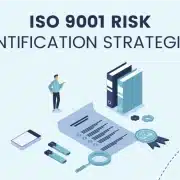The rise of internet commerce in the digital age has altered our purchasing and selling habits.. However, something known as exists under the surface, affecting the structure of the digital economy. In this blog article, we will look into the concept of ghost commerce, including its definition, important features, and, most importantly, its impact on businesses and customers. We can move through this ever-shifting environment and make informed decisions in the world of technology.
Defining Ghost Commerce
The term “ghost commerce” relates to the invisible and regularly computerised deals that take place in the digital marketplace. These transactions can be identified by the absence of direct human interaction and are made possible by modern technologies such as artificial intelligence, methods, and smart contracts. In the background, enables seamless and efficient transactions while reducing human involvement.
The Mechanics of Ghost Commerce
To complete activities without the use of typical suppliers, ghost commerce relies on advanced technologies and processes. These systems are designed to carry out a variety of tasks, including as managing stock, payment processing, order fulfilment, and customer care. solutions may discover and match customer and seller choices, improve price, and even make personalised ideas using analytics and AI.
The Impact on Businesses
The effect of ghost commerce on companies working in the digital marketplace is huge. On the one hand, it increases efficiency, reduces costs, and provides for growth. By automating processes and reducing human participation, businesses can enhance operations and create better customer experiences.. However, there are also challenges , such as the potential loss of human connections with clients and having to adapt to developing technologies.
The Impact on Consumers
Ghost commerce provides customers with comfort, quickness, and a personal purchase experience. Artificial intelligence-powered recommendation engines can analyse consumer behaviour and preferences to deliver specific product suggestions. Furthermore, computerised payment processing and order fulfilment improve the simplicity of online buying. Customers’ concerns about privacy, security, and the lack of personal touch in transactions, however, remain justified.
Navigating the Ghost Commerce Landscape
Businesses and customers have to change and accept technologies in order for success. It is critical for companies to achieve a balance between efficiency and keeping personal client interactions. Businesses may stay successful by using data analytics to gain knowledge about customer behaviour, choices, and market trends. Customers, on the other hand, must be alert in terms of privacy and security, providing that they make educated decisions and understand the results of ghost commerce.
Conclusion
Ghost commerce is a developing idea that has transformed the digital marketplace. Its impact may be seen in the increased efficiency and speed of transactions, but it also highlights concerns about the loss of personal relationships and potential challenges for established enterprises. Businesses and consumers can efficiently manage this environment if they understand the workings and implications of phantom trade. We must embrace technology while focus on privacy and security.









Comments